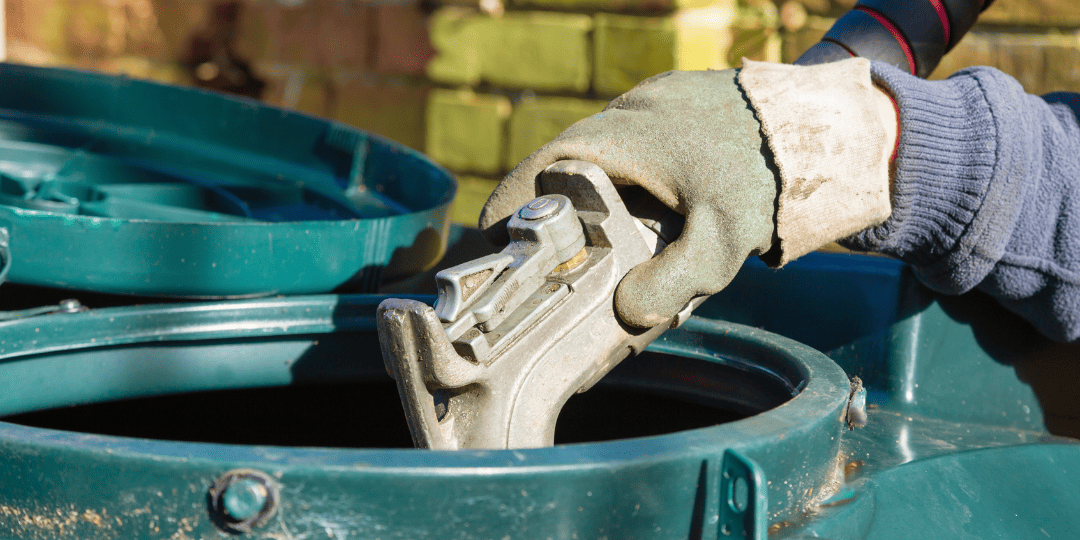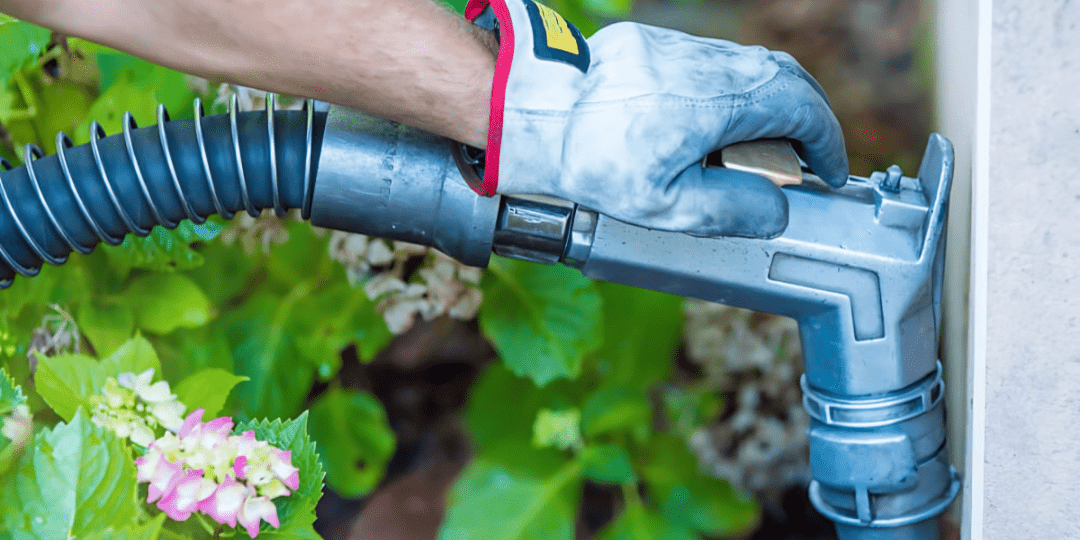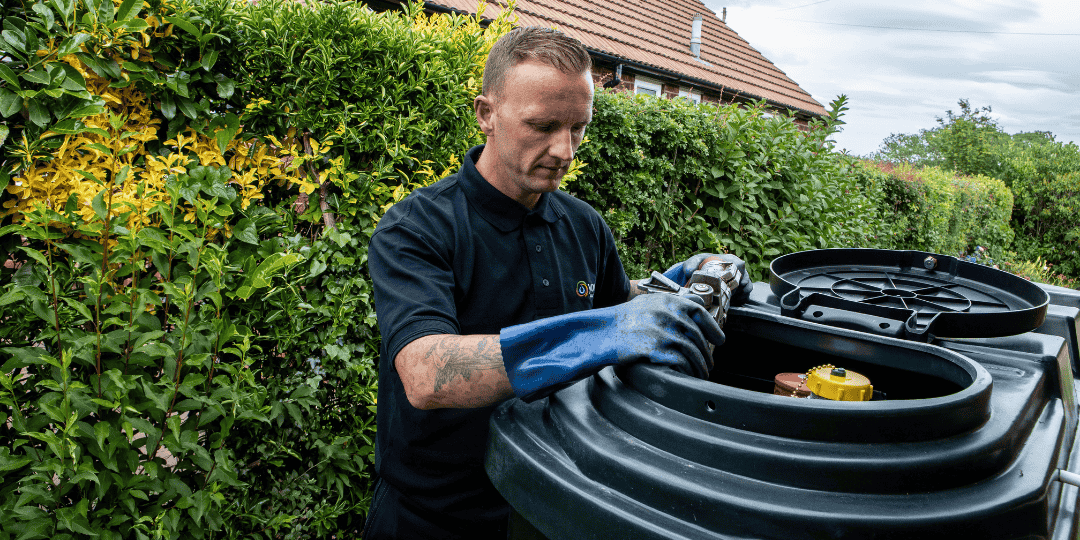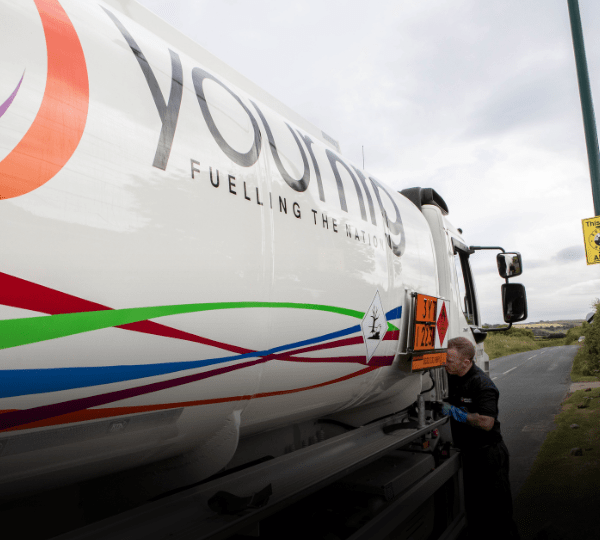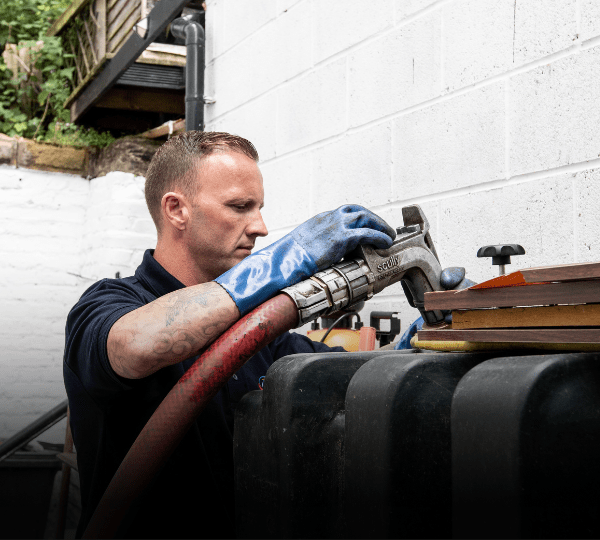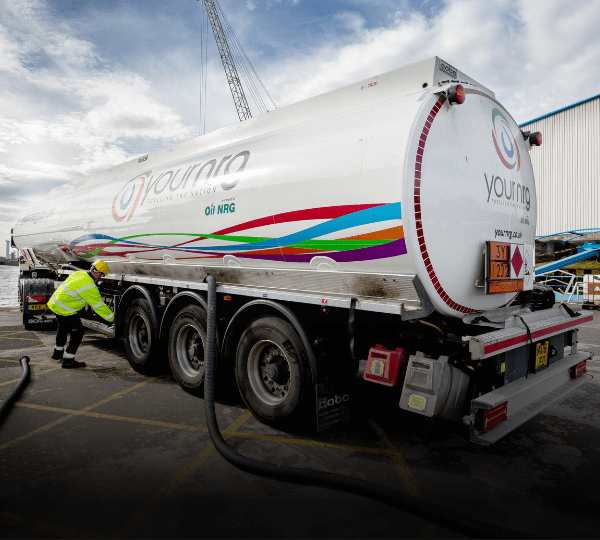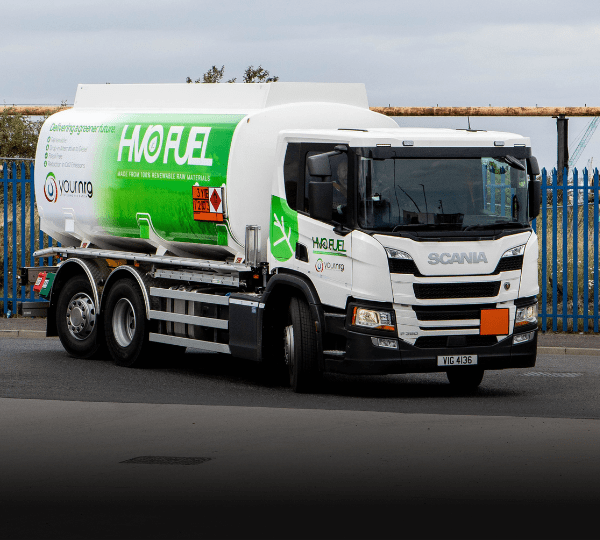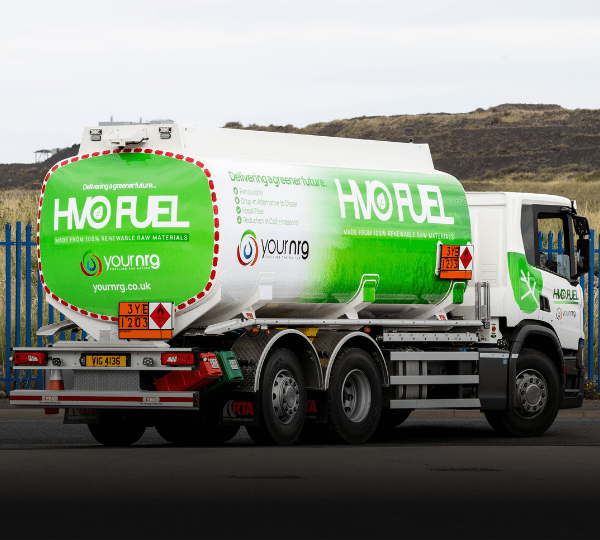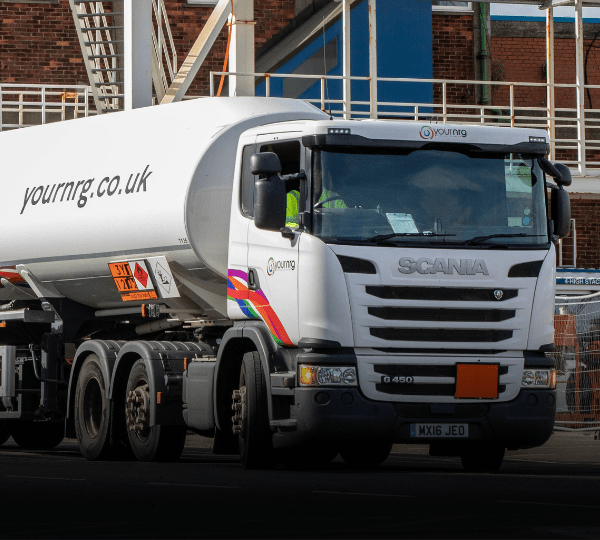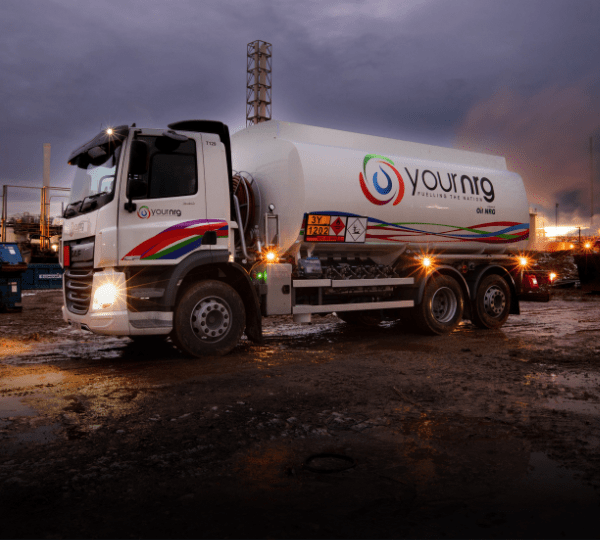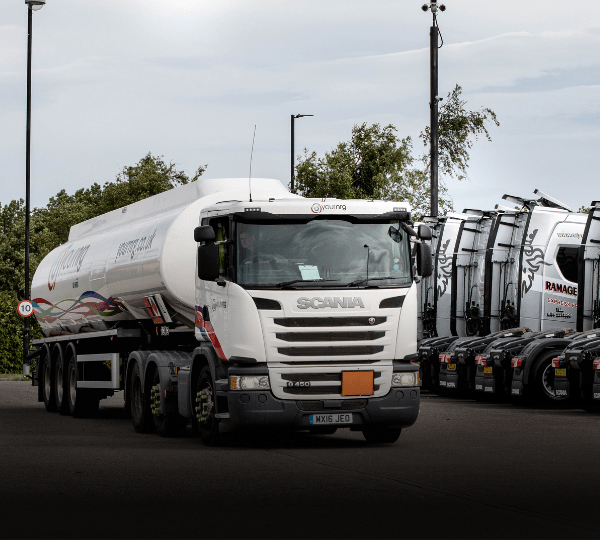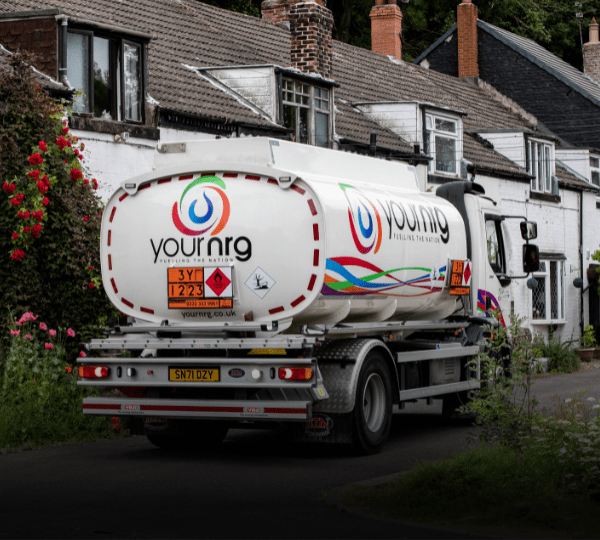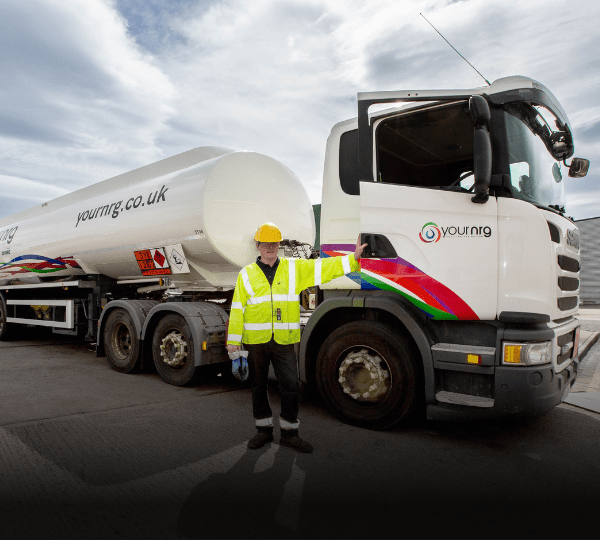Jump to:
- Building regulations for domestic oil tanks
- Oil tank installation regulations
- Fire safety domestic oil tank regulations
- Environmental protection oil tank regulations
- Maintaining your domestic oil tank
- What are the rules for domestic heating oil disposal?
Building regulations for domestic oil tanks
For most homes, heating oil storage falls under domestic oil tank regulations rather than commercial rules. These regulations apply across England (Scotland, Wales, and Northern Ireland may differ slightly).
The main rule to know:
- If your tank holds less than 3,501 litres, it’s classed as domestic. Anything larger is subject to commercial regulations.
Other building regulations include:
- Your tank and pipes must be positioned safely away from buildings and boundaries.
- Tanks must have a visible notice showing what to do in case of an oil leak.
- Oil tank installations must minimise all risk of leaks and pollution.
Oil tank installation regulations
When installing a new heating oil tank, there are clear rules to follow under domestic oil tank regulations. These make sure your tank is safe, accessible, and properly supported.
Key points include:
- Your tank must sit on a stable, non-combustible base.
- It should be placed where your fuel supplier can reach it easily for deliveries.
- Adequate spacing must be maintained between the tank and nearby structures.
Fire safety domestic oil tank regulations
Fire safety is a major part of domestic oil tank regulations. Your tank needs to be placed at a safe distance to reduce fire risks:
- 1.8m away from non-fire-rated buildings such as sheds, garages, or extensions.
- 1.8m away from windows, doors, and appliance flues.
- 600mm from non-fire-rated screening, such as trellis or hedges.
- 760mm from non-fire-rated fences not forming part of your home’s boundary.
If space is tight, you can fit a fire protection barrier instead. This must have at least a 30-minute fire rating and be positioned 300mm from the tank.
Once your tank is set up in line with domestic oil tank regulations, the next step is keeping it topped up. With Your NRG, you can count on fast, reliable heating oil deliveries, so your home stays warm without the stress. Get your free quote now!
Environmental protection oil tank regulations
Preventing leaks and pollution is another important part of domestic oil tank regulations. As the homeowner, you’re legally responsible for making sure no oil enters the environment.
Steps to protect the environment include:
- Using bunded tanks (double-layered) to contain leaks.
- Carrying out regular checks for cracks, corrosion, or faulty fittings.
- Keeping delivery areas clear to reduce spill risks.
If a leak happens:
- Turn off the supply tap immediately.
- Contain the spill using sand, earth, or commercial absorbents.
- Prevent oil from reaching drains, watercourses, or buildings.
- Inform your fuel supplier and your insurance provider.
- Contact the Environment Agency if there has been contamination.
Maintaining your domestic oil tank: cleaning, lifespan, and monitoring
Staying compliant with domestic oil tank regulations involves ongoing care after the initial installation, including:
- Tank cleaning: Over time, sludge and rust can build up inside your tank. Keep yours efficient and free from risk of breakdown with a professional clean every few years.
- Fuel lifespan: Heating oil usually lasts 18–24 months. Stored correctly in a compliant tank, leftover fuel should be safe to use next winter.
- Cold weather: Kerosene typically freezes at around -8°C, so it’s rare in the UK, but keeping your tank sheltered adds peace of mind.
What are the rules for domestic heating oil disposal?
If you need to dispose of old heating oil, it must be done safely and legally. Domestic oil tank regulations require that waste oil be handled by a licensed site. Contact your local council to find your nearest disposal point.
If you’re replacing or removing an old tank:
- Use a qualified professional to prevent environmental damage.
- Ask about recycling options, as many tank components can be reused.
Order your heating oil from Your NRG today
At Your NRG, we make heating oil delivery simple. Competitive prices, dependable service, and drivers who care are what we’re known for. Don’t wait until you’re running low – order your heating oil delivery today!
Domestic heating oil regulations FAQs
Do I need OFTEC registration for my heating oil tank?
You don’t need to personally register your heating oil tank with OFTEC, but it’s strongly recommended to use an OFTEC-registered technician for installation and servicing. OFTEC engineers are trained to install and maintain tanks in line with domestic oil tank regulations, making sure your system is safe, efficient, and compliant. If your tank isn’t fitted by a registered technician, you may need to arrange a building control inspection instead.
Do I need planning permission for a heating oil tank?
In most cases, you don’t need planning permission for a domestic heating oil tank, provided it meets size limits and is installed in line with domestic oil tank regulations. However, planning permission may be required if:
- The tank has a capacity of more than 3,500 litres.
- Your property is listed or in a conservation area.
- The tank is positioned in a highly visible location.
Do heating oil tanks need regular inspections?
Yes, regular inspections are needed to comply with domestic oil tank regulations and to keep your system safe. Tanks should be visually checked at least once a year for signs of corrosion, cracks, or leaks. Many homeowners arrange this as part of their annual boiler service. Professional inspections can help spot problems early and prevent expensive damage to your home or the environment.
Updated October 2025
